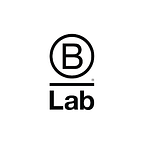B Lab Forces for Good Podcast: How Can Business Combat Greenwashing?
A look at how to spot greenwashing and learn from companies that are telling transparent stories about their environmental footprint.
Have you noticed an influx of products marketed as sustainable, eco-friendly, or recycled? You’re not alone. As the world becomes more environmentally concerned, businesses are increasingly leveraging green marketing to reach conscientious customers. But not all marketing is created equal.
In this episode of the Forces for Good podcast, experts from B Lab, Wieden + Kennedy Amsterdam (an advertising agency and Certified B Corporation), and PwC Chile Foundation explain the problem of “greenwashing,” when marketing is designed to make consumers believe a business is doing more for the environment than they really are. We talk about how to spot greenwashing and learn from companies that are telling transparent stories about their environmental footprint.
This episode aims to answer the following questions:
- What is the difference between green marketing and greenwashing?
- How have businesses and the advertising sector misled consumers about their environmental responsibility?
- How can these same players combat greenwashing?
- How can consumer awareness combat greenwashing?
Guests include:
- Maria Correa, Head of Marketing and Communications at B Lab Europe
- Luke Purdy, Director of Social Impact and Group Account Director at Wieden + Kennedy
- Sharoni Rosenberg Amszynowski, author of WTF is Purpose and Executive Director at the PwC Chile Foundation
Listen to the episode now across all major platforms and find excerpts below.
Maria Correa, Head of Marketing and Communications, B Lab Europe: There’s lots of different ways that greenwashing can manifest itself. Sometimes it’s if a product is using nature cues or vague, unfounded words like eco-friendly or green or sustainable or good for the planet, for example. Another way that greenwashing might manifest itself is if a product or if a company is talking about one specific line of products or one initiative that isn’t representative of the majority of what the company does. So, for example, if there’s a capsule collection that’s quote-unquote “more sustainable,” yet the majority of the company’s products are manufactured in an unethical way that might also be greenwashing. We want to incentivize these companies to rethink the way that they do business.
Greenwashing is pervasive. The European Commission did a study where they looked at over 300 different company websites and their claims about environmental practices. They found that 42% of those claims were exaggerated, false, or deceptive. And they found that 37% used vague terms like “conscious,” “eco-friendly,” and “sustainable.”
Luke Purdy, Director of Social Impact and Group Account Director, Wieden + Kennedy: It really does start internally in just making sure that your own company goals, objectives, and values are lining up with what you’re preaching and ultimately being a good partner to your clients and making sure you’re growing their business in a sustainable way. Is there room to move from messaging to action? And this is really important because there’s a lot of brands who are doing interesting things out in the world. But to be completely honest, a commitment doesn’t quite make you special today. You need to really show a plan of how you’re going to get there. So often we ask our clients, what do you want to achieve? What’s the most important thing for your business? And once we both are on the same page with the business objectives and the shared goals, we can then build a plan out of how to reach that. And there’s a lot of different pathways to get there. And so we can come with ideas and creative solutions that are more sustainably minded, that still achieve their goals.
Having genuine purpose as a company is also a way to combat greenwashing. But finding purpose isn’t easy. Sometimes companies can go wrong when they’re trying to find it. And that’s where greenwashing or “purpose” washing can occur.
Sharoni Rosenberg Amszynowski, Executive Director at the PwC Chile Foundation: They need to show that they care for more than the maximization of profits and invest in that. And it’s not just the words, but sometimes you have to make difficult decisions where you sacrifice some of the income for other metrics. (B Corp Certification) gives you like a very good diagnosis over who you are and how you can you move forward. Then if you get the certification, it also pushes you to move forward. So if you are a big company, what are companies doing? First, do you have a sustainability department, someone that coordinates through the areas and could do a mapping of what are your weaknesses and strengths? That’s the first step. Do you do, like, sustainability reports? Because if you do, you have to do an exercise that goes like the material analysis where you see what are the important issues depending on your industry and the specific characteristics of the company.
Listen to the episode now across all major platforms.
This article was originally published at https://www.bcorporation.net. The views and opinions expressed are those of the interviewees and do not reflect the positions or opinions of the producers or any affiliated organizations.
B The Change gathers and shares the voices from within the movement of people using business as a force for good and the community of Certified B Corporations. The opinions expressed do not necessarily reflect those of the nonprofit B Lab.
